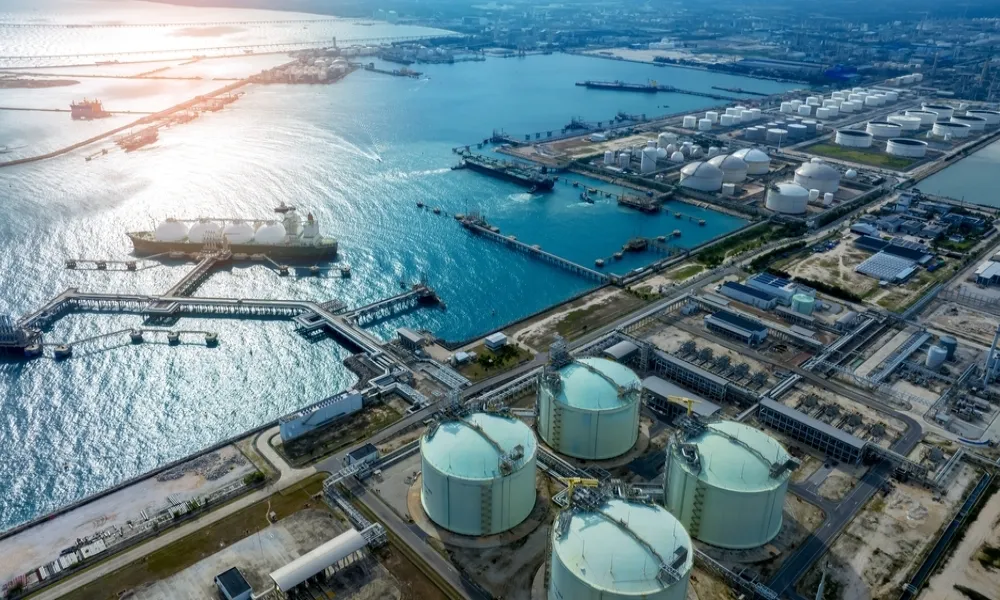2000–2003: Clerides government
Cyprus’ first serious effort to bring natural gas into electricity generation began under Glafcos Clerides. In 2001, Commerce Minister Nicos Rolandis explored a Syrian pipeline from Banias, with gas sourced from Egypt via Jordan. Rolandis warned a deal had to be struck by summer 2002 for gas to arrive by 2005.
An alternative was importing LNG from Egypt, with hopes Cyprus could re-export to Europe as part of its ambition to become an ‘energy hub'. The Electricity Authority (EAC) clashed with the Energy Service, led by Kassinis: EAC favoured heavy fuel oil for Vasilikos’ third unit, while Rolandis and Kassinis argued gas would halve electricity costs. Big plans were made to use natural gas beyond for power generation, in industry and households too. A pipeline was proposed to link Vasiliko to Dhekelia power station.
Yet, by 2002, little progress had been made. There was talk of importing Russian gas. A study was commissioned and the idea of compressed natural gas (CNG) soon muddied the waters.
2003–2008: Papadopoulos government
By 2003, the Syrian option was abandoned. In 2004, Minister Giorgos Lillikas unveiled plans for a £250 million regasification terminal at Vasilikos, with a new target of 2009. Talks with Egypt on LNG supply began in parallel. But disputes over EAC’s role in the onshore terminal (as an investor or not) stalled progress.
In 2007, Lillikas’ successor Antonis Michaelides proposed a floating terminal as a stopgap measure to import LNG or CNG by 2010, alongside plans for the onshore facility. The move triggered fierce criticism: DISY leader Nicos Anastasiades decried it was the “scandal of the century”. He accusaed senior officials of colluding with private interests to push the floating terminal and abandon the onshore project.
He alleged that then–EAC head Costas Ioannou and Lillikas had dealings with companies promoting the floating option:
“Just two months after the Cabinet’s new decision, the minister, instead of working toward the onshore terminal, was steering the country toward a technology of uncertain prospects, with catastrophic consequences for the economy, but highly favourable for powerful private interests,” Anastasiades said.
He further claimed these private interests had hired President Papadopoulos’ law firm as legal advisers.
In November 2007, DEFA (Natural Gas Public Company) was established. Parliament intervened decisively in December 2007, outlawing any floating solution and mandating a “single onshore terminal, as the exclusive facility for receiving, storing, and regasifying LNG in the Republic of Cyprus.”
2008–2013: Christofias government
In 2008, Minister Antonis Paschalides relaunched the plan: a €400m oil terminal and a €650–700m gas terminal at Vasilikos, promising gas by 2013. Interest poured in from Egypt, Qatar, Greece and Algeria on importing gas, while twelve potential investors showed interest in the onshore terminal.
But successive tenders for long-term gas supply collapsed. By 2011, the floating option resurfaced, and in 2013, 14 companies bid to supply “transitional” gas – another dead end.
2013–2023: Anastasiades government
Noble Energy suggested supplying gas from Aphrodite in 2013. A new tender for transitional gas imports followed, launched by Energy Minister Giorgos Lakkotrypis, plus talks on an Aphrodite–Vasilikos pipeline. Both failed.
In May 2017, Lakkotrypis confirmed that DEFA had pivoted to LNG imports with a target date of 2020, at a cost of €289m. The EU-backed Connecting Europe Facility would provide €101 million from the EU, €150 million from the European Investment Bank, and €80 million from the EBRD. On December 13, 2019, DEFA subsidiary ETYFA (Natural Gas Infrastructure Company) signed with Chinese consortium CPP to build the infrastructure. An earlier DEFA tender for gas supply drew 25 bids – but none materialised.
In June 2020, Lakkotrypis announced construction of the floating terminal would begin within a week and finish in 24 months – by July 2022.
Meanwhile, in March 2020, Norwegian giant Hoegh LNG submitted a “fast-track” proposal: to bring gas by the first quarter of 2021 via its own platform at Vasilikos, operated by VTTI (whose CEO, Giorgos Papastasiou, would later become Energy Minister). The Attorney General’s office rejected the proposal, ruling that DEFA could not sign a contract without a tender.
Problems with the CPP contract emerged under Minister Natasa Pilidou. Visiting Vasilikos in March 2021, she found no actual construction, only initial design work.
By 2021, delays mounted and CPP demanded an extra €100m, citing pandemic supply chain disruptions. After tough negotiations, the government conceded €25m, raising costs to €315m and pushing completion to July 2023.
2023–2025: Christodoulides government
Energy Minister Giorgos Papastasiou reported in April 2024 that works were 75% complete – the floating unit 95%, the onshore terminal 45%. CPP, however, had halted construction months earlier while demanding €200m more. Papastasiou conceded project’s completion by July 2024 was “likely unrealistic” and spoke of a “small delay.”
By July 2024, ETYFA terminated the contract.
The floating unit Prometheus remained in Shanghai before sailing to Malaysia, where it could not be certified as a functional FSRU without modifications.
A ‘Plan B’ to finish onshore works and the jetty by late 2025 or early 2026 with CPP’s subcontractor collapsed after the latter refused to take on the risk, bursting the government’s bubble of confidence that it was in control. ETYFA hired a project manager in May 2025 to assess whether to resume with a new contractor or start over.
Tender documents are ready, but officials fear the project’s poor reputation will deter bidders. A final report due in around three months will determine the construction defects, material deviations, risks, true remaining costs, and timelines.
For now, neither the minister nor DEFA can guarantee when – or if – Cyprus will ever see the half-finished project completed.
